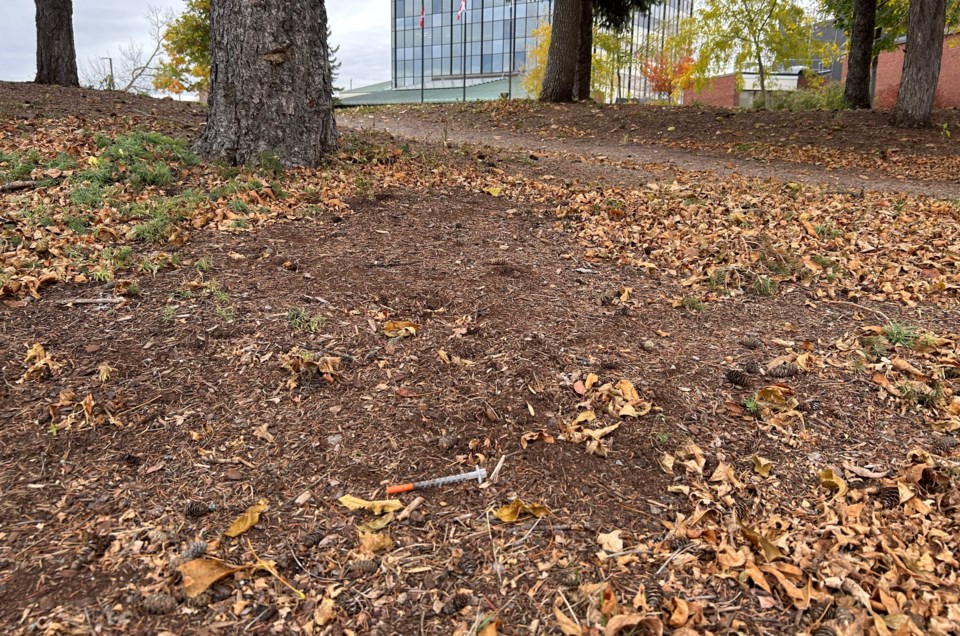To the editor:
The rising homeless numbers in our city, and our country, have certainly given rise to controversy, opinions, and sadly, hostility and misplaced blame.
In honesty, I will say, that while I understand the concept behind harm reduction, I am not a believer in the manner in which it has come to be seen as a solution, as opposed to a tool.
Harm reduction should be seen as a tool, nothing more, a tool used to save lives in extreme circumstances. It should never be regarded as a solution to addiction. Unfortunately, harm reduction has become just that, the solution. When we hand out clean needles and drug paraphernalia, provide safe injection sites, and provide opiate withdrawal treatment, such as methadone and suboxone, we do so with compassion and empathy.
But what have we really done? We have taken away the very basis of human survival, hope. We are essentially saying, “We’ll save your life today, come back tomorrow and we’ll do it again. This is your life now, this is as good as it gets.”
I am not suggesting that we stop all harm reduction programs. I am suggesting we push the government to fund and provide real solutions in addition to harm reduction. We need solutions that offer hope, solutions that give people a reason to live, a future.
We can’t continue to just keep people alive and expect them to miraculously realize that they need more. When someone is in the throes of serious addiction we can’t expect them to make rational life-improving decisions, they are simply trying to survive, trying to find a fix to ease the dope sickness, to quiet the demons in their mind, or to forget some past (or present) trauma.
Some days a window of clarity opens briefly, only to be slammed shut when the impossibility of securing treatment becomes glaringly apparent.
We need to be able to offer real quality solutions. Here in North Bay, we have one residential treatment program, one. I understand that we are in the process of constructing another treatment centre, unfortunately, this is not likely to make a dent in the problem, as the homeless numbers continue to rise daily, as we ignore the importance of prevention.
Obviously, this is a complex problem, there is no easy quick fix. This is a problem that began over 4 decades ago when the government decided to push deinstitutionalization. Under the guise of “treating people more humanely,” they discharged countless patients from psychiatric facilities across the country promising to provide housing, and mental health support/services in the community.
Needless to say, that did not happen. Patients were released and, for the most part, left to fend for themselves with inadequate (at best) support. From there, some people who were unwell, untreated, and unsupported went on to have children of their own, and so the cycle began. Many of those children, who suffered various forms of trauma, became unwell themselves. The problems increased, and the services and support decreased.
Today, we are seeing the results of government greed at its finest.
They continue to bury their heads in the sand, refusing to admit that harm reduction is only a tool, and that we need to address a complex problem with complex solutions. I don’t have all the answers, but I know that we need to focus more on prevention, than survival after the fact.
We need to give people hope for their future.
Imagine living on the street and the only thing you have to look forward to is an outreach worker bringing you some snacks, dry socks, and naloxone kits. Hope is as important to survival as food and water, without it we die a slow emotionally, and psychologically painful death and, all too often, physical death follows.
I do understand that not all homeless people are addicts; however, the problem remains the same. Mental health and addiction programs and services are sadly, devastatingly, lacking in this country.
In closing, please do not mistake my words for anti-harm reduction words. I am not anti-harm reduction, I am pro-hope and pro-solution and pro- evidence. What we are doing is not working and is, in fact, exacerbating the problem.
Let’s combine harm reduction with programs and services that will give people hope and make them feel valued, as opposed to feeling like they are a drain on society. Let’s put more money into treatment for childhood trauma and into (quality) parenting programs for parents who are struggling to parent while they’re struggling to overcome their own issues. Let’s put more money into prevention.
Rita Hamilton
North Bay



